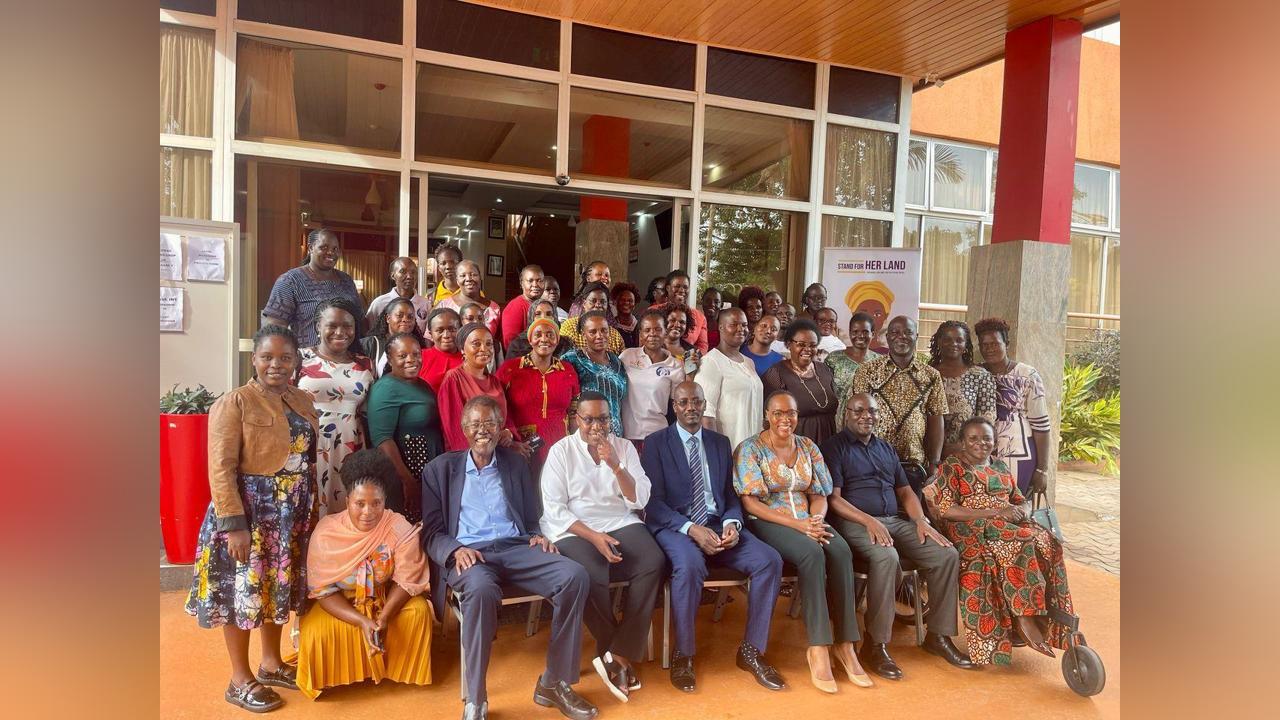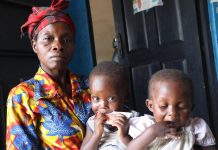Africa-Press – Uganda. Grassroot women have asked that government improves on women’s access to own land in the National Land Policy 2013 that is currently under review.
Speaking during a consultation meeting by the Ministry of Lands on the National Land Policy 2013 review at Eureka Hotel in Kampala, a section of women mobilised by the ‘Stand for Her Land Campaign’ said there is need to move away from some cultural beliefs that stop them from owning land.
“As women who till the land, there is need to have control over it in form of ownership. We have so many women who would want to go into commercial farming but if they decided to do so, they are said to be big headed. This is because they don’t have ownership on this land. This needs to change in the National Land Policy,” Janey Lapat from Pader said.
She also emphasized cultural beliefs that she said are stopping women from owning land, calling for a change in this through the land policy.
“We are now buying land in the names of our own brothers yet we could have land in our own names. The National Land Policy must address this.”
“There are scenarios where my husband buys land but I build the house on this land that we stay in. What happens to the house in case we are separating? How do I benefit from the house I built on my husband’s land in case of separation and I want to go into another marriage?”
Maxencia Nakibuuka, from Kampala raised an issue where women inherit land or get land in form of donations from their relatives but are actually not allowed to own it.
“On many occasions women are given land by their relatives but find a hard time proving it belongs to them as relatives fight for it. For example, if I am given land by my aunt but unfortunately, she dies, I don’t know where to go get a legal document for this land. This issue needs to be sorted by the land policy,” Nakibuuka said.
Gloria Lanyero from Gulu called for a change in the representation of women on area land committees which she said is not fair.
“The law says at sub county level, at least two women and three men sit on the are land committee. The number of women is small and therefore their voices are not equally heard as that for men. We think the voices for women are suppressed and we want this changed to have equal representation,” Lanyero said.
A section of the women opined that land titles have provisions for shared ownership between couples.
“If possible, include where both spouses can sign on the land titles so that we as women also have voices. Many cases men die and leave women vulnerable with children after being pushed out by relatives from the marital land,” Stella Ilukol from Amuria said.
Speaking on the sidelines of the meeting, Frances Birungi Adong, the Executive director for Uganda Community Based Association for Women and Children Welfare (UCOBAC) said they have organized grassroot women to participate in the reviewing of the National Land Policy 2013.
“Through this process we want to ensure we have a good policy that will guide development of laws that will regulate how land is acquired, used and managed in the country. As UCOBAC we feel it is very important that when such processes are happening in the country, everyone has a voice and views included. Especially, we want marginalized groups in society like women participate in this process,” Birungi said.
“We have brought these grassroot women who live and work in their communities as individuals or groups from different parts of the country to engage with the Ministry of Lands and have their views captured.”
She explained that by sharing their views, challenges and what they want included, the women will have an input in the policy.
“One of the major issues for women is that when it comes to land as a resource, it is mainly managed in communities through cultures and being a patriarchal society, most of these resources are managed through a male dominated system which leave out women. Because of this, many women are not able to own land, make decisions on it and others use it but based on relationship they have with men. This way, their rights on land are limited.”
The commissioner in charge of policy in the Ministry of Lands, Henry Irumba Harisson said by interacting with grassroot women, they sought to get their views on the revised national lands policy.
He said so far they have caried out eight regional meetings about the new policy.
One of the advocacy priority issues for the Stand for Her Land Campaign is to advocate for the strengthening of the voice, agency and participation of grassroots women in land governance.
For More News And Analysis About Uganda Follow Africa-Press






